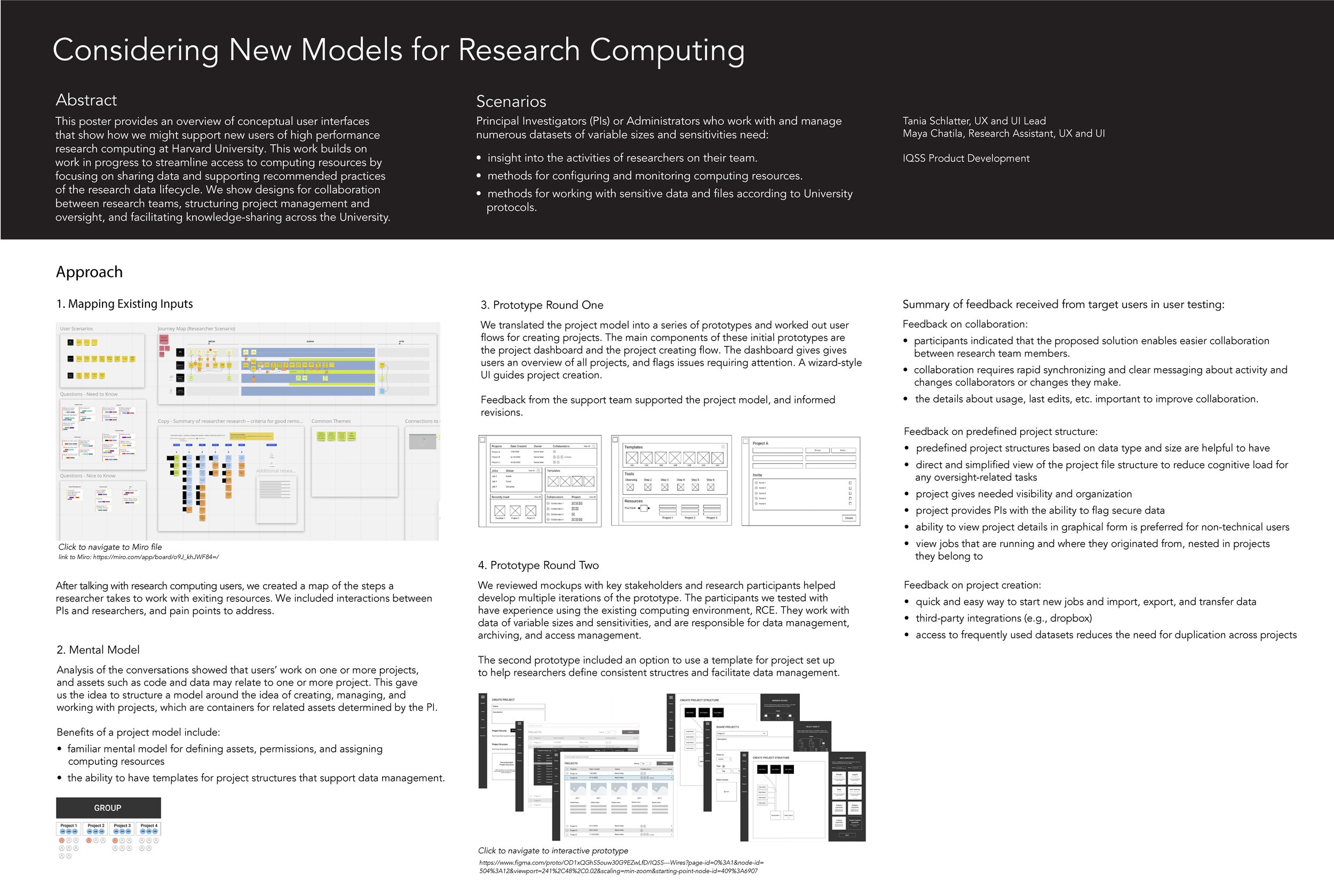UX research and design for high-performance computing at Harvard
Sid is a new platform for social science researchers designed to improve access to high-performance computing resources.
During my tenure Sid evolved from an internally-designed application to one using Open On Demand. I led user research and design throughout.
Results include:
contributing components to OOD’s core open source code.
collaboration on a short paper presented at PEARC23, Practice and Experience in Advances Research Computing conference, sponsored by the ACM.
adoption of Sid’s conceptual framework by Harvard Business School’s research computing organization their computing platform.
Research on this multi-year project included interviews with researchers across schools at Harvard including stakeholders from Harvard Business School, Faculty of Arts & Sciences and the School of Engineering and Sciences. I led contextual inquiry sessions, UX & UI design and advised on service delivery including onboarding experience and access to support.
Diagram to communicate the initial Sid concept.
Framework for successful research computing UX created from consolidated user research.
Story map used to coordinate Sid design and agile development.
Logo art direction: Tania Schlatter. Design: Dwayne Liburd.
UI design: Sid provides quick start buttons to launch pre-configured jobs, which streamlines job creation and detailed resource reporting features to reduce lost work.
Process image showing collaboration on content planning for service rollout and support guides.
Poster showing our process for defining a project-based conceptual model for future application development. This model is being used by Harvard Business School for their new computing cloud-based computing infrastructure.






